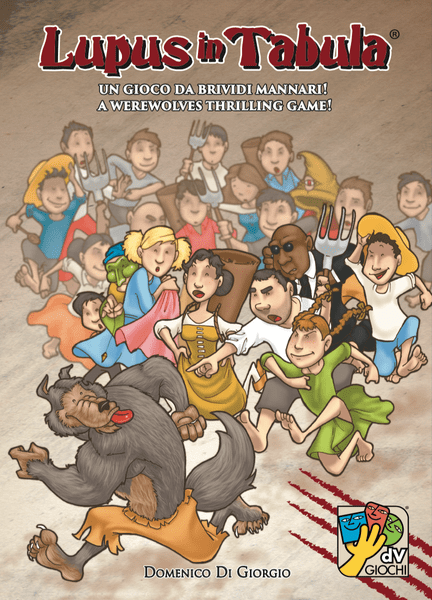Lupus in Tabula (2001) Board Game
Lupus in Tabula, which translates to “Werewolf in the Village,” is a popular social deduction party game that was first released in in 2001. Designed by Domenico Di Giorgio and published by DV Games, the game has become a staple in the genre of bluffing and deduction games. With a horror-themed setting and a focus on player elimination and voting mechanics, Lupus in Tabula is a game that thrives on deception and strategy.
Game Components of Lupus in Tabula
How To Setup Lupus in Tabula
To set up the game, the moderator shuffles the role cards and distributes them to the players. Each player looks at their card to determine their role without revealing it to others. The moderator explains the roles and the rules, ensuring everyone understands the objectives and mechanics. The game is divided into night and day phases, with the night phase starting immediately after setup.
Gameplay Mechanics and Game Objective
Player Experience
Playing Lupus in Tabula is a dynamic and interactive experience that combines social deduction, negotiation, and strategy. Players must use their communication skills to convince others of their innocence or guilt, making it a great game for those who enjoy social interaction and teamwork.
Pros
Cons
Personal Thoughts on Lupus in Tabula
Lupus in Tabula is ideal for large groups and social gatherings where interaction and teamwork are key. It is a great choice for those who enjoy Werewolf/Mafia games and are looking for a game that combines negotiation and strategy. However, it may not be the best fit for smaller groups or those who prefer more complex, strategic gameplay.
We are supported by our audience. When you purchase through links on our site, we may earn an affiliate commission, at no extra cost for you. Learn more.

